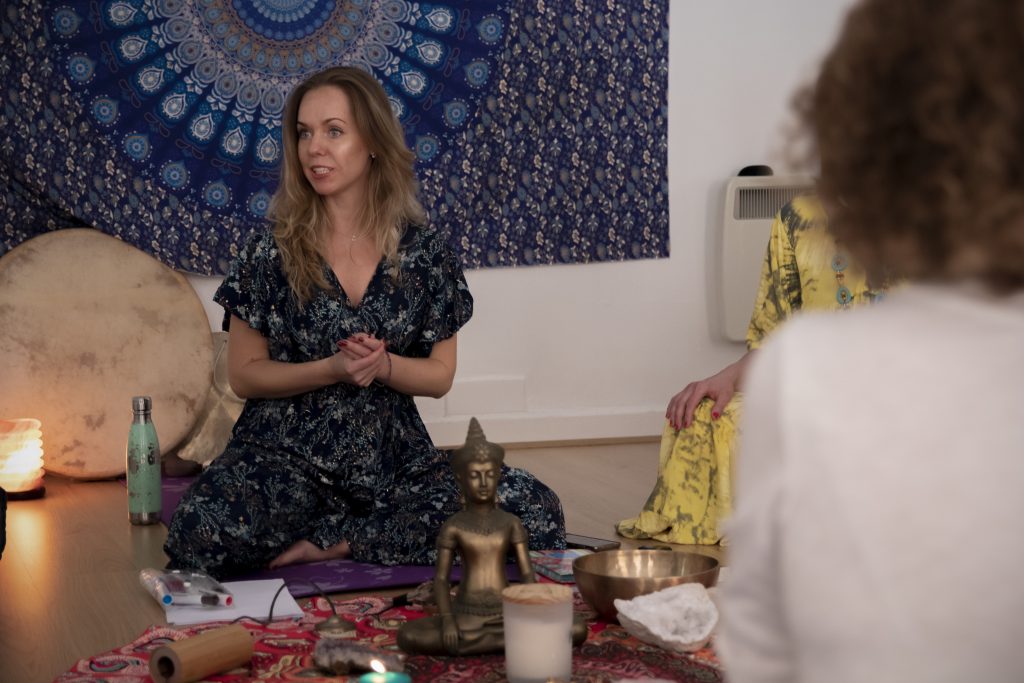
Why a Balanced Life is Important for Health & Wellness
Doctors to wellness coaches tell you that you must balance out your responsibilities in life. Whether it is time to work out, exercise, go to school or go to work, balancing all these tasks will lead to better physical/emotional health, peace of mind and living well. According to helpguide.org, eating well and keeping a good life balance can help fight depression.
Our body and mind respond in different ways, so there is no such thing as a perfect, healthy lifestyle, being healthy doesn’t happen overnight. A sports enthusiast, Z Hereford, uses sports analogies to express the importance of maintaining balance:
For an Olympic athlete to get optimum results he/she must train for the event in the most efficient and productive manner because the margin of error in a sporting event is minuscule. The athlete must maintain a routine that includes the proper balance of sleep, good nutrition and exercise.
He/she must also employ psychology to make sure that the necessary mindset or attitude is in place. Attitude and mindset are so important that they could make the difference between winning and losing. If any one of these components is missing, or out of balance, the athlete will not perform well.
This is applicable to our lives also, to perform our best, we have to take care of ourselves physically, mentally and spiritually.
How to maintain balance?

Before you begin your journey, Here are some steps that should be taken seriously to maintain balance in your life.
- Focus on what’s important to you: You shouldn’t try to include yourself in every activity. Know your priorities and focus on them. Choose what it is that you want to work on and what you want in your life. Set them and get to work.
- Get plenty of rest, food and exercise: However much help you function your best. Read books on diet and exercise for more information.
- Eat right: For your body to create new cells, it needs healthy food and nutrition. Eating healthy food e.g. your five a day can help improve life balance.
- Maintain a positive mental attitude: We decide where we want to concentrate our energies. Part of living a well-balanced life is learning how to deal with adversity, unforeseen events and uncertainty. Let life take its course and practice not being overly stressed on things you can’t control.
- Communicate with loved ones: Let your people know what is bothering you, and what you enjoyed from your day.
- Make time for yourself: Do something spontaneous, go for a massage, take time to relax, and listen to music. Whatever makes you the happiest.
Gosia Wojciulewicz is a Wellness Coach, Yoga & Pilates Teacher, Holistic Therapist & Reiki Master, and Personal Trainer. She worked as a manager in a leading sports club before establishing her own business for public and corporate clients. Gosia promotes a healthy, balanced lifestyle to help people reach their potential, both in a personal and professional capacity. She spoke to Global Woman Magazine to inform our readers about health and a balanced life.
As a wellness coach, why is taking care of mental health so important?

For a long time, physical health was seen as more important than mental health, simply because physical injuries were plainer to see and more straightforward. Thankfully, things have changed, and there has been increased recognition of the essential part mental health has to play in one’s well-being. This is vital, as mental health affects every aspect of our lives, including our thoughts, behaviours and emotions. Crucially, mental illness also impacts the rest of our bodies. Anxiety, for example, is linked to headaches, insomnia, and digestive issues. A healthy mind is an inherent part of a healthy body, and I’m encouraged to see that society is moving past stigmas to assess physical and mental health equally.
How should our readers take care of their mental health? What are some techniques, courses, and training exercises that can help?
Fortunately, there are so many ways to nurture your mental health. We can start with the basics, like making sure to get enough sleep, stay active, and eat healthily. It is said, that “movement is medicine”, and numerous studies support the link between exercise and brain health. Going for a simple walk in nature, for example, can improve your mood by reducing feelings of stress or anger.
Meditation and breathwork (or pranayama) are two amazing ways to improve well-being. Taking time out for yourself to simply be aware of the present, the thoughts, and the emotions you’re having can build a deep sense of connection with yourself. It can help you gain a new perspective on stressful situations, reduce negative emotions, and increase imagination, creativity, patience and tolerance. Practising gratitude is also powerful. Where the focus goes, the energy flows. It’s that simple.

Any type of mindful movement, like yoga, dance, or qi-gong, can help you connect your mind, body, and heart, strengthening your sensitivity to your intuition, and inducing feelings of peace and calm. Signing up for a course or learning a new skill might at first seem daunting, but once you find something that brings you joy, you will naturally be inspired to do it regularly. It can help you meet new people and feel more connected with your community. Consistency is key to it becoming a part of your lifestyle. You just have to give it a chance.
“If you are pursuing goals and chasing desires that are not right for you, or are not necessarily yours, you might be fighting a current that will never ease.”
What is your definition of conscious living?
I’m a strong advocate of conscious living which, in simple terms, involves intentionally creating the life you want to live, rather than drifting along passively day-by-day. Conscious living means carefully evaluating what you want to do, and becoming aware of your motivations and reasons.
How do your body, mind, heart, and soul work together for a balanced life?

Perhaps it is helpful to first clarify what these elements are concerning each other. The body is easy. It’s the physical vessel through which we move through life. It’s what grows, matures, and ultimately, what fails. The mind is where our mental processes take place, including thought and consciousness. The body and mind are connected physically and chemically in the brain and its neurons, the study of which is neuroscience. We enter slightly more ambiguous territory when it comes to the heart and soul. However, the heart is where our emotions originate, it’s what guides our conscious decision-making. Our passions do not originate from the mind, as the mind is concerned more with rational thinking and regulating bodily functions. The soul, then, is something we aren’t necessarily always aware of, it’s the embodiment of our spirit. It is the immaterial essence of us, and one that transcends the physical, three-dimensional world we are so used to. The soul can be accessible to us in states of super-consciousness, or enlightenment, which is often the goal of yogic practices. But this takes work.
To reach our fullest, healthiest potential, we need to focus on nurturing and harmonising the energy emitting from each of these four elements. Often, care and attention are provided to only the body and the mind. Our heart and our soul are sometimes neglected simply because we don’t know how to listen to our heart, or how to let the soul speak.
We must learn to use the body and the mind to access the heart and soul. Practices I mentioned above like yoga, meditation, mindfulness and qi-gong, can help us get in touch with the heart and soul. It’s all about cultivating and nurturing each energy in unison. Not favouring one over the other, as they are all intertwined, and essential to living a happy, fulfilling life.
“Adults need to realise the importance of mental well-being to live a joyful life before we expect the youth to.”
Why do you promote a balanced life in your coaching?
Balance is everything. Our busy modern lives push us to constantly strive for more, for extremes. We wake up too early and stay up too late. We work too hard, or too long. We don’t see enough of our loved ones. We overindulge. We burn out. But why is it that we never relax too hard? Laugh for too long? Why do so many of us not get enough sleep? A lot of this can be remedied by simply embracing balance. We need to better learn how to balance what we want versus what we need and recognize that everything has positives and negatives.

What should you do to avoid stress?
I’m not sure you can avoid stress. Life will always throw up difficult situations, no matter how hard we try to avoid them. The key is really how to manage stressful situations when they arise. We can employ breathing techniques or visualisation, for example, to help calm our fight-or-flight response that is triggered in times of stress. Stepping out for some fresh air, listening to relaxing music, or getting a massage are also options. The list is endless. I would invite you to reflect a little. Are you fully aware of the decisions you make? Do you own these decisions? Are you following what your soul is telling you to do, or are you trying to swim upstream? If you are pursuing goals and chasing desires that are not right for you or are not necessarily yours, you might be fighting a current that will never ease.
In your opinion, is mental health now being taken more seriously? What should the UK government do to tackle mental health more? Any policy suggestions?
Yes, mental health is definitely beginning to get the attention it deserves. However, more emphasis needs to be put on teaching younger generations about emotional intelligence, including self-awareness and compassion for others, at the primary level. It’s all well and good to pin our hopes on the next generation, but we have to remember that it’s up to us to teach them. Adults need to realise the importance of mental well-being to live a joyful life before we expect the youth to.





